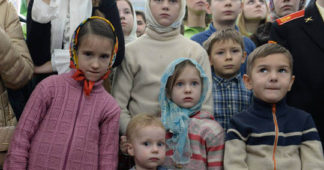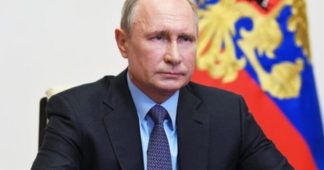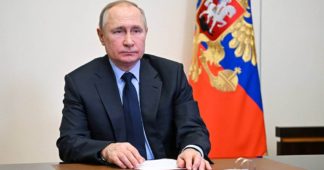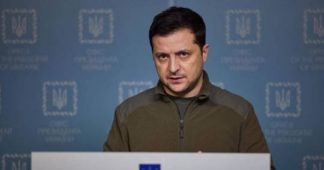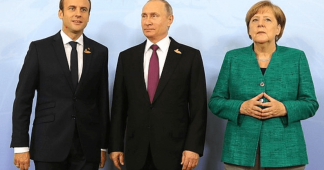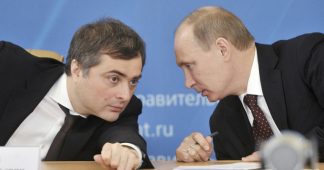Without a government mandate, the ex-German chancellor met with top Russian and Ukrainian officials after conferring with Putin last Thursday.
By Matthew Karnitschnig
March 14, 2022
Ex-German Chancellor Gerhard Schröder has continued his unlikely mission to broker peace between Russia and Ukraine in recent days, meeting with top officials on both sides of the conflict from Moscow to Istanbul.
The former German leader, widely criticized across the West for his close relationship with Russian President Vladimir Putin, agreed last week, at the behest of Ukrainian intermediaries, to act as an unofficial mediator between the two sides in stalled peace talks.
In the first leg of his endeavor, Schröder traveled to Moscow on Thursday to meet with the Russian leader. His discussion with Putin that day was “very intense” and frank, according to a person close to him. Schröder made clear what he thinks of Russia’s actions in Ukraine, the person said, without offering further details.
After meeting with Putin on Thursday in the Kremlin, Schröder sat down Friday morning with Vladimir Medinsky, the Russian leader’s chief negotiator in cease-fire talks with Ukraine, according to the person close to the former chancellor.
The two had a “long discussion” focused on the same points — including the status of disputed territories and Kyiv’s NATO aspirations — that have been on the table in bilateral talks between Russia and Ukraine in Belarus and Turkey, according to the source.
Over the weekend, Schröder then traveled to Istanbul, where he met on Sunday with Rustem Umerov, a Ukrainian MP and member of his country’s delegation in peace talks with the Russians. The ex-German politician gave Umerov, who has been in contact with Schröder since last week, a summary of his discussions in Moscow. A spokeswoman for Umerov declined to comment.
It was not immediately clear whether Schröder would make another trip to Moscow.
The German government has not authorized Schröder’s role as a go-between and expressed surprise after learning about it following a POLITICO report on his mission last week. After initial criticism from his own center-left Social Democratic Party, which leads Germany’s government coalition, SPD Chairman Lars Klingbeil expressed hope that the former chancellor would succeed.
While Schröder’s shuttle diplomacy hasn’t yielded any immediate results, such as a hoped-for cease-fire, the one-time German leader believes his relationship with Putin and lack of a formal mandate from any government — including his own — allows him to play a unique role as an elder statesman outside normal diplomatic channels.
In recent days several world leaders, including French President Emmanuel Macron, German Chancellor Olaf Scholz and Israeli Prime Minister Naftali Bennett have all spoken to Putin, but Schröder is the only Western figure to have met with both the Russian leader and Ukrainian officials in person.
Ukrainian officials originally contacted Schröder through Ringier, a Swiss media group. Schröder worked as an international consultant for Ringier for more than 15 years, but the publisher ended the relationship amid the recent controversy surrounding Schröder’s refusal to relinquish his board seats on Russian energy companies after Moscow’s invasion of Ukraine.
Ringier Chief Executive Marc Walder agreed to link the Ukrainian side with Schröder and facilitate their first meeting in Istanbul last week. But the company is no longer directly involved, it said.
Published at www.politico.eu
We remind our readers that publication of articles on our site does not mean that we agree with what is written. Our policy is to publish anything which we consider of interest, so as to assist our readers in forming their opinions. Sometimes we even publish articles with which we totally disagree, since we believe it is important for our readers to be informed on as wide a spectrum of views as possible.
